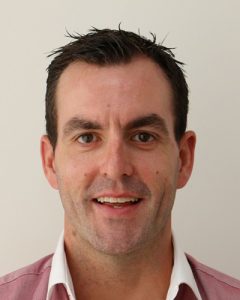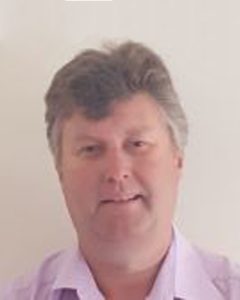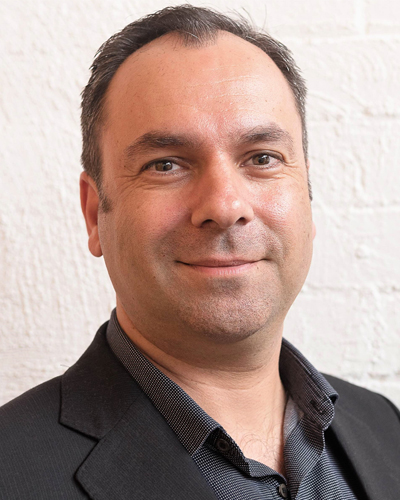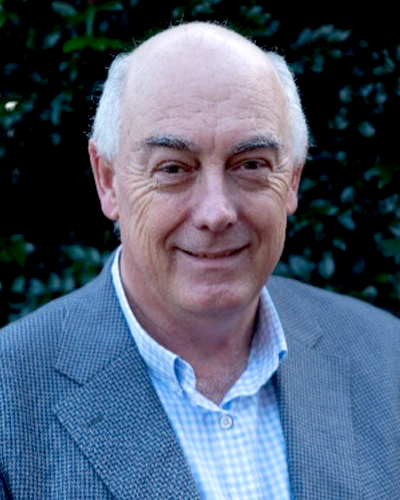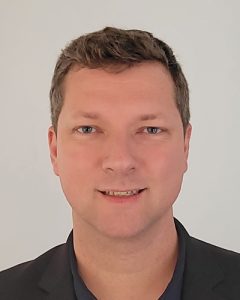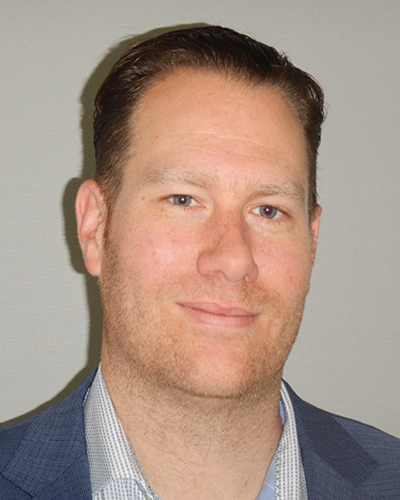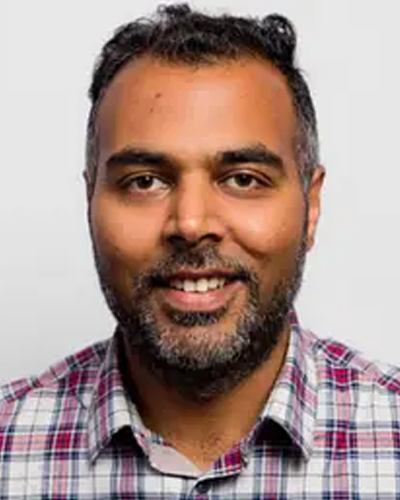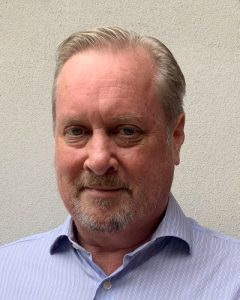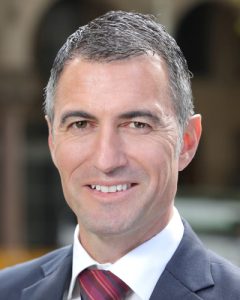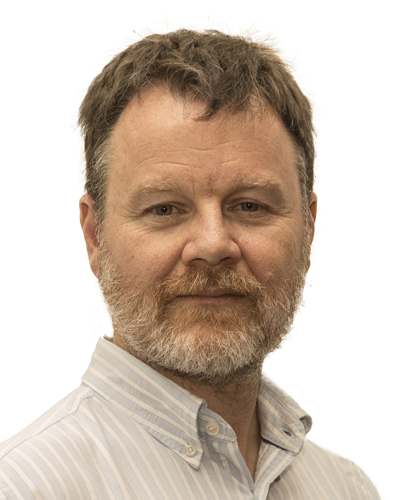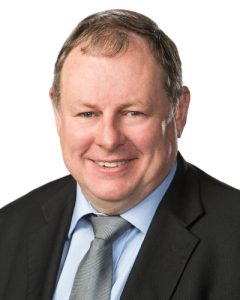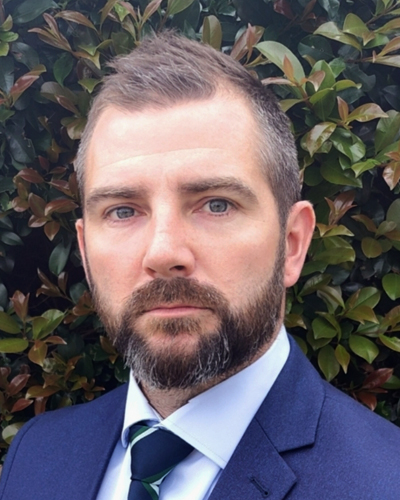Here’s to another successful conference in Perth—thanks to everyone who joined us!
On Thursday 14th March, we welcomed the critical communications community for another One-day Conference and Networking Dinner in Perth.
ARCIA’s first conference and state dinner of 2024 took place in Perth, and what a start to the year for the Association and the WA radio and critical communications community it was! A solid conference program, with a couple of concurrent workshops – LTE and microwave engineering – proved very popular, with numbers up about 15% on last year, this despite numerous challenges affecting attendance for some sectors, and the networking dinner had record numbers.
“We were very pleased with the conference turnout again this year, which demonstrates the ongoing need for collaboration and the sharing of knowledge within the broader critical communications community. With local Mick Collis as emcee and guest speaker for our WA State Dinner, we were up 20% on last year which is fantastic. The only issue we face, is that it looks like we’ll need a bigger venue for next year – thanks for the solid support WA!,” said Paul Davis, CEO, ARCIA.
At the ARCIA 2024 WA State Networking Dinner, we announced the WA State Industry Advancement Award winner — Jim Reid, Managing Director, Radlink Communications.
“It was great to see recognition for Jim on the night, he was a very popular choice for obvious reasons,” said Paul Davis.
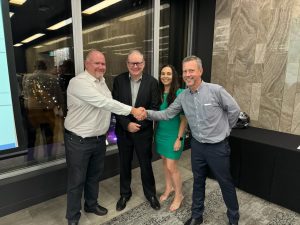 It’s a well-deserved recognition of Jim’s professionalism, leadership, dedication, and the significant growth of Radlink Communications. Jim’s contributions to both Radlink and the broader communications industry are clearly valued and appreciated by his peers. Congratulations, Jim!
It’s a well-deserved recognition of Jim’s professionalism, leadership, dedication, and the significant growth of Radlink Communications. Jim’s contributions to both Radlink and the broader communications industry are clearly valued and appreciated by his peers. Congratulations, Jim!
Individual state winners each receive a trophy and an invitation to attend the Industry Gala dinner in Melbourne, and become the nominees for the national ‘Peter Wallace Industry Advancement Award’, to be announced at the Melbourne Gala Dinner on October 16, 2024.
A huge thank you to all of our presenters and partners—with your participation and support, ARCIA can continue to deliver events like this to the critical communications community.
2024 Perth Conference Agenda:
HALF-DAY WORKSHOPS | 9:00 AM-5:00 PM
- The Fundamentals of Private Mobile Networks
- Making the Link – An Introduction to Microwave and Planning Fundamentals
CONFERENCE STREAM | 9:00 AM-4:30 PM
- The Evolution of Critical Communications – How Industry is Responding to the Needs of Critical Users for both Voice and Data
- Spectrum for Wireless Broadband – An Update
- Wireless Technologies – Considerations for Making the Best Technology Decision for your Use Case
- Deploying Private LTE Technology in Operational Telecom Networks
- Transitioning from Narrowband Communications to Hybrid PTToC and Broadband Technologies
- The Future of Communications Networks: Embracing Infrastructure-Free Communications Solutions
- Achieving Interoperability: The Future of Connected Critical Communications Systems
- ARCIA Market Update: Challenges and Opportunities
- Mission Critical Push-To-Talk – Will Land Mobile Radio Ever Go Away?
EXPERT PANEL
- A Developing Critical Communications Landscape—The Challenges and Opportunities that come with New Technology and More Choice
Perth 2024 half-day workshops
Workshop 1: The Fundamentals of Private Mobile Networks
Presented by: Simon Lardner | Head of Wireless business—Vocus, Vocus
This course will provide students with the skills to be able to outline the key elements and components of a typical wireless broadband communication system. Students will be able to develop the block diagrams and system elements for designing a basic system and demonstrate the expected requirements and outcomes of such a system, both in basic and extended formats.
On completion students will be able to understand and identify the various elements associated with system design, including the relevant spectrum sectors that are associated with wireless broadband and understand the potential outcomes that a relevant to all options that are applicable.
The course will cover:
- History of LTE and 5G technology developments
- Private LTE/5G and the mobile market segments.
- The benefits of industrial LTE/5G systems
- Towards the future and 5G and more
- Basic system design & building blocks
- Public safety applications of LTE/5G
———————————————————————————————————————————-
Workshop 2: Making the Link – An Introduction to Microwave and Planning Fundamentals
Presented by: Eddie Stephanou | Regional Technical Manager for Australia, New Zealand and Pacific Islands, Cambium Networks
Whether you are new to microwave and planning fundamentals or you are looking for a refresher, this workshop will provide you with an up-to-date overview on microwave radio planning that will assist you in planning and deployment efforts. This is an interactive session where you will also have the opportunity to ask questions on all things microwave during this live session.
The workshop will cover:
- Microwave Fundamentals
- Transmission Line
- Pathloss
- Fresnel Zones
- Water and Flat Earth
- Important Equations
- Availability and Performance Objectives
- Industry Myths – Getting back on track
- Using planning tools to bring it all together
- Q&A
Perth 2024 conference stream
The Evolution of Critical Communications – How Industry is Responding to the Needs of Critical Users for both Voice and Data
Presented by: Graham Tait | Mesh Solutions Lead, Hypha
The needs of critical communications users has evolved in the last 10 years from being purely voice centric to now being both voice and data centric.
Whilst there have been many advances in the delivery of broadband to the masses, the challenge for the industry is to not only develop innovative solutions to meet the evolving needs of the users, but to also educate them in ensuring their systems are sufficiently robust to maintain both voice and data communications where and when they need it.
How can we all work together to ensure our customers are deploying solutions that meet their needs today and provide a platform for the future?
———————————————————————————————————————————-
Spectrum for Wireless Broadband – An Update
Presented by: Andrew May | Executive Manager, Spectrum Engineering
An update on any changes to Wireless Broadband spectrum in the 1.9 to 6.7 GHz bands.
Of particular focus, the Australian Communications and Media Authority (ACMA) have almost completed their initial round of licensing of 3 GHz spectrum in remote parts of Australia under the new licence type – the AWL or “Area Wide Licence”.
How do you “register” services in AWL spectrum? Is any more AWL spectrum available? And will ACMA now move on to selling licences in the regional and metro areas?
———————————————————————————————————————————-
Wireless Technologies – Considerations for Making the Best Technology Decision for your Use Case
Presented by: Justin Wyatt | Principal ICT Consultant, Titan ICT
With all the buzz about LTE and 5G, how do you filter through the noise to make the right technology decision for your business? This session will provide thoughts for discussion and consideration, with the aim of aiding the right technology choice. It will also outline when the business case supports the adoption of LTE/5G technology as the preferred solution.
———————————————————————————————————————————-
Deploying Private LTE Technology in Operational Telecom Networks
Presented by: Vishal Kohli | LTE/5G Specialist, Commtel Network Solutions
Private LTE networks have gained momentum in Australia, especially in the Mining & Oil and Gas sectors. They can not only improve safety and operational efficiency, but also act as an enabler for Industry 5.0 and IIoT applications.
This case study looks at the deployment of Private LTE in Oil and Gas environments, which cover large areas, and various aspects , such as high availability systems, distributed architecture, radio redundancy for IIoT and LoRA applications.
The session will provide insight in to the future of Private LTE/ 5G and its application, key spectrum takeaways, as well as the added operational benefits of an LTE system, which were previously restricted to carriers.
———————————————————————————————————————————-
Transitioning from Narrowband Communications to Hybrid PTToC and Broadband Technologies
Presented by: David Deacon | CEO, Etherstack
Interworking between the narrowband and broadband communications domains has now arrived and is now actively being deployed world-wide using standards-based technologies.
Yet, the technology is still in its infancy and important differences exist in standards development approaches as well as between implementations being seen deployed in enterprise (eg resources and transportation industries) as compared to public safety grade networks.
In this talk, David Deacon CEO of Etherstack (ESK:ASX) will discuss real-world deployments of LMR-LTE interworking at ATT FirstNET in the US, as well as trials undertaken in Australia and elsewhere, and will give insights into what the future looks like for both narrow- and broadband communications solutions and the options for transitioning to Hybrid PTToC and broadband, whilst still recognising the unique challenges presented in Australia.
Etherstack is a wireless communications technology specialist that has developed and licensed APCO P25, TETRA and DMR standards-based technologies to over 20 radio equipment manufacturers world-wide.
———————————————————————————————————————————-
The Future of Communications Networks: Embracing Infrastructure-Free Communications Solutions
Presented by: Peter Scarlata | CEO Australasia, Simoco Wireless Solutions
Traditional terrestrial networks, relying on fixed infrastructure, have served as the backbone of global communication for decades. However, as we progress into an increasingly dynamic and interconnected future, it becomes evident that these networks face formidable challenges that limit their effectiveness.
This session underscores the limitations of terrestrial networks, which include high installation costs, vulnerability to natural disasters, and the struggle to reach remote or underserved areas. Moreover, these networks may struggle to meet the demands of emerging technologies such as IoT, autonomous vehicles, and smart cities.
Conversely, infrastructure-free communication networks, leveraging technologies like LTE, mesh networks, and low Earth orbit satellites, offer a promising alternative. These solutions facilitate rapid deployment, resilience in the face of disasters, and broad coverage, even in remote regions. Moreover, they accommodate the growing demand for high-speed, low-latency connectivity, making them the frontrunners in shaping the future of global communication networks.
In conclusion, this session emphasises the adoption of infrastructure-free communication networks as a pivotal step to meet the evolving demands of our increasingly connected world.
———————————————————————————————————————————-
Achieving Interoperability: The Future of Connected Critical Communications Systems
Presented by: Paul Whitfield | Research & Development Manager, Omnitronics
The critical communications landscape is rapidly evolving, prompting a key question amongst industry professionals: How can we achieve seamless interoperability in an increasingly complex set of technologies, protocols, and vendors?
This session investigates interconnected systems, exploring the feasibility of integration within the varied landscape of today’s diverse communications ecosystems.
In pursuit of digital transformation, interoperability is key for creating building cost effective, efficient, robust, and adaptable systems. As industry professionals we need to keep abreast of evolving technologies and design systems that can communicate reliably, irrespective of vendor or platform.
“Achieving Interoperability: The Future of Connected Systems” presents use cases where technology’s potential is maximised through integration. This topic is a call to action for radio communications professionals, vendors, and resellers to collaborate, innovate, and guide users towards a future of better interoperability while avoiding vendor lock-in.
Join us as we look at bridging different infrastructures and probe into the mechanisms that can unite them. This is not merely a technical ‘how-tos’ but about fostering a mindset committed to openness and interoperability.
Key Takeaways:
- Uncover strategies for interoperability across various technologies, vendors, and protocols.
- Examine case studies where successful connection between disparate systems has been achieved.
- Explore innovative solutions to the problem of vendor lock-in.
- Discuss the landscape of industry standards and protocols that promote interoperability.
———————————————————————————————————————————-
ARCIA Market Update: Challenges and Opportunities
Presented by: Hamish Duff | President ARCIA
During this session, Hamish Duff, President ARCIA, will consider local and international trends in the radio and critical communications sector, with particular focus on the following areas:
- Market response to the needs of customers and the availability of new technologies
- New terminals, new connectivity options and new collaborative tools
- The challenge of modern vehicle fit outs with new technology to integrate
- Satellite continues to provide new options
- Modern control rooms – increasing levels of video and new technologies: Managing these environments and looking after operators
- ARCIA work to review Broadband spectrum and the impact of new ACMA licencing
- ARCIA MoU with 450 Alliance – aiming to understand potential future impacts for Sub 500 MHz
———————————————————————————————————————————-
Mission Critical Push-To-Talk—Will Land Mobile Radio ever go away?
Presented by: Lee Mason | Account Manager ANZ – Public Safety & Professional Communications, L3 Harris
The future of Land Mobile Radio (LMR) is a topic of ongoing debate. Will cellular Push-To-Talk (PTT) solutions like 3GPP MCPTT eventually replace LMR, opinions remain diverse.
It is crucial to carefully consider the interworking of Mission Critical Push-to-Talk (MCPTT) between Long Term Evolution (LTE) and LMR systems. Undoubtedly, Project 25 (P25) remains a significant benchmark for evaluating alternatives in the North American public safety communication.
———————————————————————————————————————————-
A Developing Critical Communications Landscape—The Challenges and Opportunities that come with New Technology and More Choice
Moderated by: Chris Stevens | Managing Director, CartGIS Pty Ltd
As we’ve heard today from our experts, when it comes to delivering professional communications solutions for your customers, your organisations and your colleagues, there has never been more choice. In determining the right fit for your use case, there are many factors that must be considered, including cost, delivery time and performance, along with priorities in terms of end user needs.
During this session, our expert panel will consider the current and developing critical communications landscape and how a growing list of available solutions creates opportunities, but also presents challenges.
Conference Chair
Chris Stevens
Managing Director, CartGIS | Chris Stevens is Managing Director of CartGIS Pty Ltd, an emergency management, GIS and mapping and communications consultancy company based in Melbourne. Chris has extensive experience in LMR network design, planning and implementation as well as GIS and mapping application design and commissioning. CartGIS Pty Ltd also specialises in bespoke training and education for the critical communication community. Chris has extensive qualifications and experience in secondary, tertiary and workplace training and education, which, coupled with his communication experience, delivers industry and client focused outcomes. Chris is also Co-Vice President of ARCIA, and Sub-committee convenor of training and education for ARCIA. |
Presenter Biographies
Simon Lardner
Head of Wireless business—Vocus, Vocus | Simon is the Head of Wireless business — Vocus at Vocus/Challenge Networks, a telecommunications system integrator specialising in the design, build and management of small-scale carrier networks around the world. More recently, Challenge has become a world leader in the deployment of private LTE networks for the resources sector. Simon has over 27 years of international experience in the telecommunications industry specialising in mobile network design and implementation. |
Eddie Stephanou
Regional Technical Manager for Australia, New Zealand and Pacific Islands, Cambium Networks | Eddie Stephanou is Cambium Networks’ Regional Technical Manager for Australia, New Zealand and Pacific Islands. He is responsible for technical development, support and growth of fixed wireless solutions portfolio. With almost 20 years Australian industry experience in fixed digital microwave systems, Eddie has worked with, and alongside, leaders in the microwave space both locally and abroad. He holds a Bachelor’s Degree and a Master of Engineering Degree in Telecommunications. |
Graham Tait AFSM GIFireE
Mesh Solutions Lead, Hypha | Graham Tait AFSM is a former firefighter with Fire & Rescue NSW for over 40 years, including 37 years as a career firefighter and officer, he is also a current serving volunteer firefighter with the NSW Rural Fire Service where he has over 46 years service. During his career, he specialised in the areas of both Rescue and Operational Communications. He was a member of the AUS2 Urban Search & Rescue team for 12 years which saw him deployed to various incidents including the Christchurch Earthquake, Japan Tsunami, Vanuatu Cyclone and Indonesian Earthquake as both a rescue team member and communications lead officer. Serving in the Operational Communications role for the final 17 years of his career, he dedicated himself to the key areas of managing the Computer Aided Dispatch system, Automatic Vehicle Location and Mobile Data system, radio networks and hardware, GIS, and field deployable communications systems. He has been recognised for his leadership in the Public Safety and technology space both in Australia and Internationally, and continues to advocate for advances in communications and technology that will provide improvements in safety and efficiency for front line emergency personnel. Following his retirement from full time firefighting in 2022, he has taken up a role with Hypha Solutions to ensure he can continue to bring his experience to the business continue to advance technology for the first responder community. |
Andrew May
Executive Manager, Spectrum Engineering Australia | Andrew is the Executive Manager of Spectrum Engineering Australia and has been with Spectrum Engineering for 19 years. During this time he has amassed a broad and intimate working knowledge of the regulatory environment and the coordination and licensing requirements for radio services in Australia. He now leads a team of professional engineers who provide licensing solutions to all sectors of the radio industry including the major carriers, government and the private sector. Andrew holds a Bachelor of Computer Engineering with First Class Honours from the University of Wollongong. He holds accreditation under the Australian Communications and Media Authority to issue Frequency Assignment Certificates and Interference Impact Certificates, and holds Approved Radio Certifier (ARC) status under New Zealand’s Radio Spectrum Management (RSM) branch. |
Justin Wyatt
Principal ICT Consultant, Titan ICT | Justin Wyatt is a Principal ICT Consultant specialising in ICT networks and infrastructure solutions. He is a respected subject matter expert in systems engineering and telecommunications architecture and is equally comfortable in the design office or on site using his broad range of experience. With deep domain understating of wireless, fibre optic and IP systems, including both enterprise and carrier technologies, Justin has advised major corporations in setting a platform within their wireless and transport operational strategies. Justin’s expertise lies in end-to-end engineering, from stakeholder engagement and requirements gathering through to design, installation, commissioning, customisation and integration into existing systems/applications. An advocate for knowledge sharing, Justin happily imparts his learnings as a mentor to Titan ICT’s junior and graduate engineers. |
Vishal Kohli
LTE/5G Specialist, Commtel Network Solutions | Vishal Kohli is LTE/5G Specialist at CommTel Network Solutions, a company that specialises in providing solutions, products and professional services for mission and business critical networks. Vishal has extensive experience in designing, engineering and commissioning of business critical and mission critical systems as well as carrier market across APAC. He has experience in planning, designing, deploying, and operating networks with a wide range of technologies over the time from GSM to 5G. |
David Deacon
CEO, Etherstack Plc | David Deacon founded Etherstack in Sydney in 1995 and oversaw the company’s expansion around the world including the establishment of R&D offices in New York, Yokohama and Reading (UK). David’s original vision for Etherstack was as a specialist wireless technology licensing company providing underlying technologies for the land mobile radio and defence communications industries. As the company grew, Etherstack branched out into transceiver design, manufacturing and deployment of complete turnkey digital radio networks. In recent years, Etherstack has developed underlying network components for 3GPP MCX networks and is currently the lead supplier of the LMR InterWorking function for the AT&T FirstNet project in the United States. The company has also been at the forefront of PTT over Satellite solutions and has deployed a P25 over Satellite solution for the Royal Canadian Mounted Police inside the Arctic Circle. |
Peter Scarlata
CEO Australasia, Simoco Wireless Solutions | Peter Scarlata has close to 25 years of experience working at senior levels in national and multinational engineering, system integration, product management, sales and marketing and general management in companies such as Bosch, Intelematics, CNG Systems and most recently Simoco Wireless Solutions. Peter’s qualifications include a Bachelor of Engineering (B.Eng.), Electrical, Electronics and Communications Engineering and a Bachelor of Applied Science (B.App.Sci) in Computer Science. At system integrator CNG Systems, Peter drove the organisation into a period of significant company growth focused on the transport infrastructure and government verticals. He has held several senior positions at Bosch and has spent time globally in Germany, US, China and Australia leading teams of product managers, engineers and purchasing personnel in driving high volume, quality and value electronic, audio and RF products to market. Peter is CEO of Simoco Australasia and is responsible for business growth within the Australasia division. His focus is on important infrastructure projects and overseeing all management, system engineering, sales and marketing activity, as well as national and multinational product management and development. |
Paul Whitfield
Research and Development Manager, Omnitronics | Paul has more than 30 years experience in developing embedded software across several industries, including rail, mining, power, banking, and communications. He was instrumental in developing Radio over IP technology more than 15 years ago, which was among the first in the world to be commercialised for mission-critical and other applications. Paul remains a thought leader in Radio over IP technology and continues to develop ground-breaking communications solutions. Over the years, Paul’s ingenuity has shaped a number of radio & communications products to world-class standards, including as Team Leader Embedded Development for Omnitronics Radio over IP products and Digital Radio Interfaces. Currently, Paul leads the Innovation and New Product Development teams at Omnitronics. Paul holds a Bachelor in Engineering, and Grad Dip in Management degrees and is an adept public speaker. |
Hamish Duff
Managing Director, Mastercom | President, ARCIA | Hamish is the Managing Director of Mastercom and a founding Director of the Orion Network. A specialist in wide–area radio networks, Hamish has a genuine understanding of the pressures faced out in the field and the role that efficient communications plays to help people every day. With a career in communications spanning more than 40 years, Hamish is skilled in making the complex, simple–engineering communication solutions to support the needs of all users—from the control room to the field. |
Lee Mason
Lee Mason, Account Manager ANZ – Public Safety & Professional Communications, L3 Harris | Lee holds a Master of Business Administration (MBA), is a Veteran and a senior business leader with proven experience in the Defence, Government, Public Safety and technology industries. Privileged to work for global technology leaders such as L3Harris Technologies, Raytheon, and Downer Group, Lee has also consulted to the Commonwealth of Australia, Army Headquarters LandC4 Directorate, and the Australian Antarctic Division ICT Capability Management team. Lee is passionate about unlocking Australia’s technological competitive advantage and delivering customer value. |


